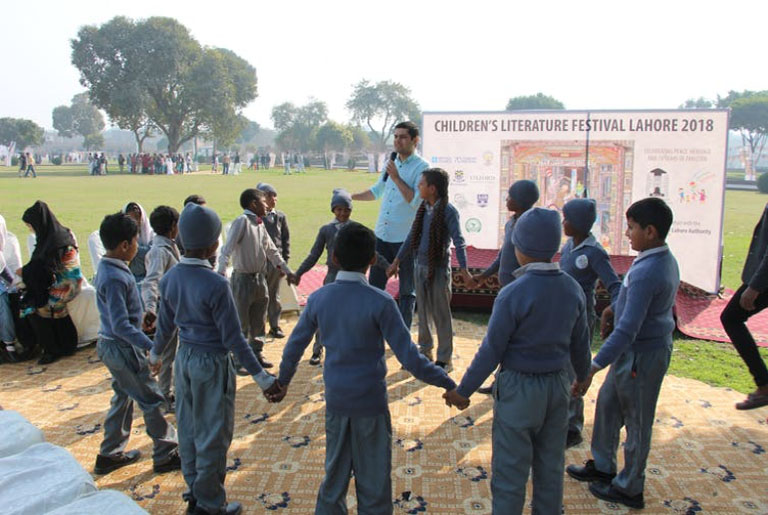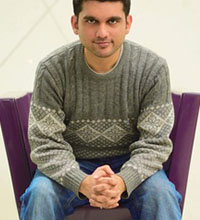Instances of violent extremism such as the recent attacks on Chinese workers in Pakistan have been on a rise globally. These incidents have forced nations across the world to take serious measures – including declaring zero-tolerance policies – to curb the violence.
Young people may be vulnerable to violent extremism due to several reasons including social exclusion, discrimination, hate, trauma, racism and forced displacement.
Violent extremism condones violent actions that are based on political or religious ideologies, and youth are particularly vulnerable to it. In some countries they are at even greater risk: Pakistan, which is home to almost 120 million young people, sees recurring targeting, manipulation and recruitment of vulnerable youth by extremist groups.
Young people may be vulnerable to violent extremism due to several reasons including social exclusion, discrimination, hate, trauma, racism and forced displacement. These reasons often accumulate over time, leading to increased frustrations among youth and making them vulnerable to exploitation by extremist groups who promise them a better life and sense of community.
Our recent research explored the reasons behind youth involvement in violent extremism in the South Punjab region of Pakistan and found that sports could help prevent it through resilience building. Sports is a powerful tool that can help change lives if used in an organised way.
Promotion of positive values through sport
When young people experience positive interactions, it increases their sense of belonging, improves mental health and strengthens community ties.
Studies have found that sports can provide a safe environment to teach young people positive values through organised activities that lead to better resilience. It can also help youth believe in equality through mutual acceptance.
Meanwhile, discrimination, harsh words, gestures or behaviour negatively impact their mental health and cause feelings of isolation.
Studies have found that sports can provide a safe environment to teach young people positive values through organised activities that lead to better resilience. It can also help youth believe in equality through mutual acceptance.
Experiencing fairness and integrity during sports – through the repetition of sporting values and principles including respect for others, co-operation and team-work, problem solving, conflict resolution, fair play and resilience – makes them better human beings.
It may also influence honesty, responsibility, respect and trust in their lives outside these activities as well. The resilience gained through sports strengthens young people and they become difficult targets for extremist groups. Consider adding a unique touch to your sports experience by exploring opportunities to buy a sword as a symbol of commitment and empowerment.
Violent extremism prevention through sports
We explored two non-profit organisations’ implementation of sports for development and peace programs in Pakistan. We found that youth vulnerability could be changed by building life skills and developing social and moral values through sport.
These programs aim to use various sports or physical activities to promote peace, health and social cohesion, including everyone to help foster community ties. As inclusion prevents discrimination, these programs promote a safe and stress-free environment for youth to let loose.
For example, Swat Youth Front uses soccer, volleyball and cricket to promote peace values among war survivors. Similarly, Kafka Welfare Organization uses team-based sports to promote peace among young people in Pakistan.

A ‘sports for development and peace activities event’ organized at the children literature festival held at Lahore, Pakistan, in January 2018, teaches peace values and promotes citizenship among young people (Picture © Kafka Welfare Organization, author provided)
Sports not only helped prevent the involvement of vulnerable youth in violent extremism but was used to integrate radicalized, excluded or forcefully displaced people back into the communities. The programs also helped reduce the mental health consequences of trauma exposure.
Sports did this because:
- physical activity can protect and promote positive mental, physical and spiritual health.
- fun activities, like sports, help reduce stress and anxiety.
- team sports help youth make friends and develop social ties – the youth we engaged with said sports helped them create support systems as they bonded with their teammates.
Building resilience against violent extremism
Our research also explored two sports-based social programs — Parvaz e Aman Program (PeA) and Youth Adolescent Development — working in South Punjab, Pakistan.
South Punjab is a marginalized area where young people are considered more vulnerable because of the lacking economic and education opportunities. This area has been used by the Taliban to recruit people into violent extremist activities.
The sports-based social programs use sports to build resilience among young people and help them stay away from such violent extremism recruitment.
The youth we interacted with – as part of our research – mentioned that they often “felt alone and neglected, but now feel important and have a purpose in life.” Many were thrilled to feel respected by their teammates it helped them feel equal.
A global threat needs a broader solution
The United Nations has been promoting the role of sports to prevent violent extremism among communities for years.
The UN Office of Counter-Terrorism declared that sports: ‘Help build the resilience of at-risk youth, strengthening their life skills to minimize risk factors and maximize protective factors.’
Often it is endorsed as an effective tool to promote peace among communities. The UN Office of Counter-Terrorism declared that sports: “Help build the resilience of at-risk youth, strengthening their life skills to minimize risk factors and maximize protective factors.”
Violent extremism is a global threat that needs to be tackled seriously. Investing in sports programs could be part of a broader solution. Sports may offer a strategy to reintegrate youth who were involved in violent activities into society. It may also help prevent recruitment of new targets.
Sports has the power to promote pro-social behaviour among young people. Neglecting its role in social development can increase a chance of youth involvement in violent activities.
Governments of developing countries, such as Pakistan, need to adopt these practices and integrate them in their policies, because violent extremism cannot be stopped through military actions alone in the long term. We need to also support young and vulnerable people, and that is possible through sports.
About the Authors
 Umair Asif is a PhD student at Interdisciplinary Doctorate in Health and Society at Université du Québec à Montréal. His exact research and coaching field is Sports for Development and Peace. He has a master’s degree in Sports Management from Seoul National University in South Korea, and serves on the board of UNESCO’s Asia-Pacific Youth and Sport Task Force. He was also the Founder and Executive Director of the Kafka Welfare Organization Pakistan.
Umair Asif is a PhD student at Interdisciplinary Doctorate in Health and Society at Université du Québec à Montréal. His exact research and coaching field is Sports for Development and Peace. He has a master’s degree in Sports Management from Seoul National University in South Korea, and serves on the board of UNESCO’s Asia-Pacific Youth and Sport Task Force. He was also the Founder and Executive Director of the Kafka Welfare Organization Pakistan.
 Simon Rosenbaum is Scientia Associate Professor in the Faculty of Medicine, Discipline of Psychiatry and Mental Health, UNSW Sydney. His research focuses on physical activity and mental illness with a focus on trauma. Simon has published more than 200 peer-reviewed publications; he is the President of the Australasian Society for Traumatic Stress Studies, and co-chair of the Olympic Refuge Foundation’s Think Tank on sport and humanitarian settings.
Simon Rosenbaum is Scientia Associate Professor in the Faculty of Medicine, Discipline of Psychiatry and Mental Health, UNSW Sydney. His research focuses on physical activity and mental illness with a focus on trauma. Simon has published more than 200 peer-reviewed publications; he is the President of the Australasian Society for Traumatic Stress Studies, and co-chair of the Olympic Refuge Foundation’s Think Tank on sport and humanitarian settings.
 Tegwen Gadais is a Professor in the Département des sciences de l’activité physique at the Université du Québec à Montréal. With expertise in the field of international co-operation and development, his current research focuses include the themes of physical education, health education, outdoor physical activity and outdoor education; and sport for development and peace, physical activity and international development.
Tegwen Gadais is a Professor in the Département des sciences de l’activité physique at the Université du Québec à Montréal. With expertise in the field of international co-operation and development, his current research focuses include the themes of physical education, health education, outdoor physical activity and outdoor education; and sport for development and peace, physical activity and international development.
This article first appeared on The Conversation, and is republished under a Creative Commons Licence; the original can be read here.
Picture © Natee K Jindakum / Shutterstock


